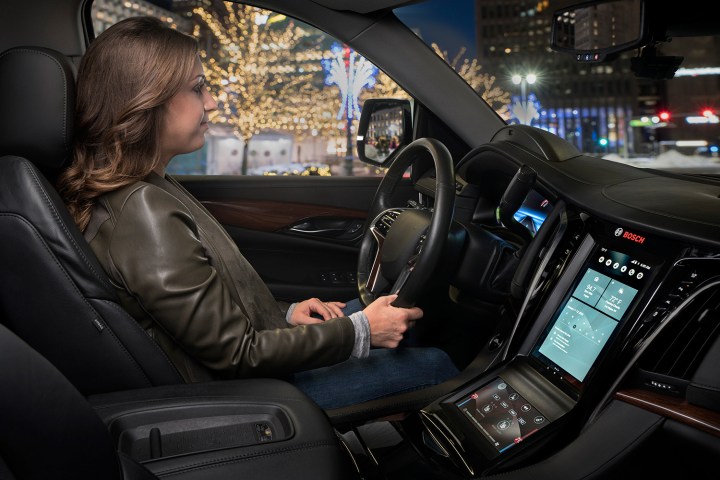
German supplier Bosch is strengthening the smartphone’s position as a mobility tool. Speaking at the ConnectedWorld forum in Berlin, the firm announced it is throwing its hat into the ridesharing ring by purchasing Detroit-based startup Splitting Fares.
Founded in 2015, Splitting Fares is a smartphone-based platform that lets companies, universities, and municipal authorities offer ridesharing services to their employees and/or students. Bosch points out the service was designed specifically for commuters, not for those who simply need a trip to the local mall or to pick up their kids at day care. It connects people who travel along the same route to the same destination. It’s like Uber Pool for co-workers and students.
After opening the app, users can either search for or offer a ride. The ones who need a lift can book one at the last minute or reserve it well in advance. The app displays the arrival time in real time, and payments are made online. The cost of each ride depends on the distance between the starting point and the destination and how long it takes to get there. Splitting Fares takes a small commission.
About 140,000 commuters currently use Splitting Fares in the United States, in Mexico, and in Germany. Bosch expects to see growth “well into the double digits,” according to Markus Heyn, a member of the company’s board of management. That sounds ambitious, but data suggests it’s a realistic prediction. The number of commuters who hit the road every morning continues to rise, creating traffic jams along busy corridors. Buying Splitting Fares is part of Bosch’s ongoing effort to make cities more livable and reduce pollution.
“By 2020, the number of people worldwide using [ridesharing services] is expected to rise 60 percent to 685 million,” Bosch wrote in a statement. Most — if not all — of them will start their commute by opening a smartphone application. Heyn declared “smartphones are becoming the most important means of travel.”
Bosch employees in Mexico began using Splitting Fares before the company considered making an acquisition. After several months, they reported commuting with co-workers has the added benefit of boosting productivity. It’s an opportunity to network and share ideas in an environment that’s more laid back than work space. You can also see if Stacy’s car is as disorganized as the blasting zone she calls her desk.
Splitting Fares puts a big focus on the made-for-businesses aspect of its platform but it’s already looking at how to expand.
“We are speaking to several airports and airlines about improving shared mobility to and from airports for their employees. This is certainly a direction that Splitting Fares plans to go in the future, especially including travelers, as we expand to cover new types of shared routes,” the company told Digital Trends in a statement.



